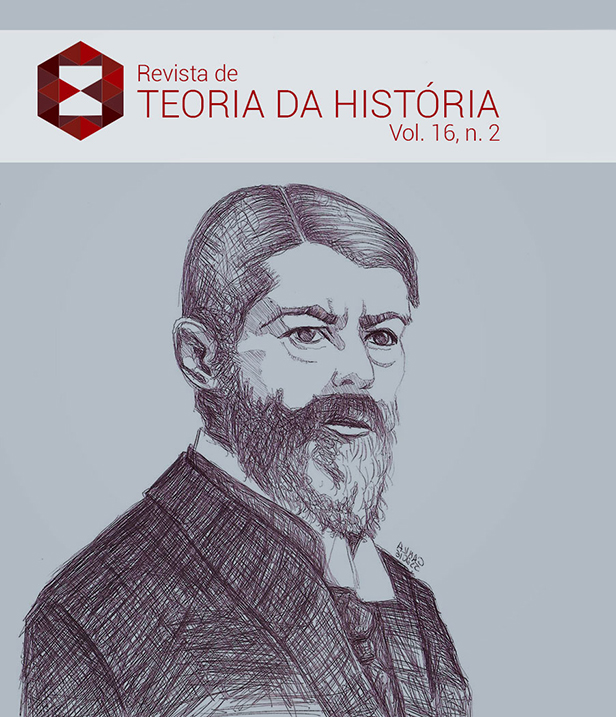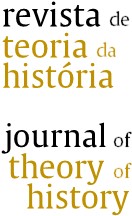MAX WEBER: CIÊNCIA DA CULTURA E HISTÓRIA
Keywords:
Max Weber, Max Weber and the story, Theory of history, Historical cultureAbstract
The debate involving science of culture and history is currently tied for the most different fields of Sociology of knowledge, cognitive sciences, psychology and education, to name just a few, and they wish to understand and participate in social matrices, whose thematic and theoretical parameters account for the trainers of the expectations on the horizon and the possibilities of cultural studies in the new ecology of modern ideas. In this sense, the objective is to understand the processes of contemporary culture as being made up of generative processes immersed in cultural history and subjectivity in cross recognition of new processes. Therefore, travel to attempt to understand how the concept of culture is explained in Max Weber, especially with the story and how this relationship is related in the world of life and in the process of modernization. This relationship allows you to emphasize a network of links to science and rationality in the process of cultural Constitution in the history of the present tense in Latin America.References
ANTONIO, Robert J.; GASSMAN, Robert M. (ed.). A Weber-Marx Dialogue. University of Kansas: 1985.
BERNARD, Philippe J. Perversões da utopia moderna. Bauru: Edusc, 2000, p. 224-225.
COELHO, Maria Francisca Pinheiro e outros (orgs.). Política, ciência e cultura em Max Weber. Brasília: UnB: São Paulo: Imprensa Oficial do Estado, 2000.
COHN, Gabriel (org.). Weber. 3. edição. São Paulo: Ática, 1986.
DIEHL, Astor Antônio. A cultura historiográfica nos anos 80. 2. Edição. Passo Fundo: UPF editora, 2004.
DIEHL, Astor Antônio. Ideias de futuro no passado. Passo Fundo: Berthier, 2015.
DIEHL, Astor Antônio. Max Weber e a história. 2. Edição. Passo Fundo: Editora da UPF, 2004.
DIEHL, Astor Antônio. Para uma teoria e cultura historiográfica. Passo Fundo: Berthier, 2015.
GERTZ, René E. (org.). Max Weber & Karl Marx. São Paulo: editora Hucitec, 1994.JAY, Martin. Dialektische Phantasie. Frankfurt: Fischer Verlag, 1981.
KOCKA, J. Kontroversen über Max Weber. In: Neue Politische Literatur, 21(1976), p. 281-301.
KOSELLECK, R. Crítica e crise. Rio de Janeiro: EDUERJ: Contraponto, 1999.
MERQUIOR, José Guilherme. Rousseau e Weber. Rio de Janeiro: Editora Guanabara, 1990.
MOMMSEN, W. Max Weber. Gesellschaft, Politik und Geschichte. 2. edição. Frankfurt: Suhrkamp, 1982.
MOSER, Walter. Spätzeit. In: MIRANDA, Wander Melo (org.). Narrativas da modernidade. Belo Horizonte: Autêntica: 1999, p. 33-54.
PEUKERT, Detlev J. K. Max Webers Diagnose der Moderne. Göttingen: Vandenhoeck und Ruprecht, 1989.
SCHLUCHTER, Wolfgang. Max Webers Sicht des okzidentalen Christentums. Frankfurt: Suhkamp, 1988.
SOUZA, Jessé (org.). A atualidade de Max Weber. Brasília: UnB, 2000.
SOUZA, Jessé (org.). O malandro e o protestante: a tese weberiana e a singularidade cultural brasileira. Brasília: UnB, 1999.
SOUZA, Jessé. A modernização seletiva: uma reinterpretação do dilema brasileiro. Brasília: UnB, 2000.
WEBER, Max. A ‘objetividade’ do conhecimento nas ciências sociais. In: COHN, Gabriel (org.).Weber. 3. Edição. São Paulo: editora Ática, 1986. p. 126.WEBER, Max. Gesammelte Aufsätze zur ReligionssoziologieI. 9. edição. Tübingen: J. C. B. Mohr, 1988 (vol. II, 7. Edição, 1988 e vol. III, 8.edição, 1988).
WEBER, Max. Gesammelte Aufsätze zur Wissenschaftslehre. Tübingen: J.C Mohr, 1988.
WEISS, Johannes (org.). Max Weber Heute. Frankfurt: Suhrkamp, 1989.
Downloads
Published
How to Cite
Issue
Section
License
The journal publishes only and exclusively original manuscripts. All rights reserved.
Licensed under a Creative Commons Attribution-NonCommercial-NoDerivatives 4.0 International License



